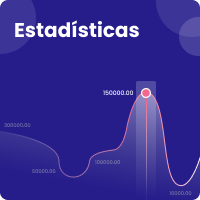The evolution of alternative dispute resolution and online dispute resolution in the European Un
DOI:
https://doi.org/10.21615/cesder.12.1.1Palavras-chave:
European Union (EU), Alternative Dispute Resolution (ADR), Dispute Resolution System (DRS), Online Dispute Resolution (ODR), automation, consumer redressResumo
The evolution of Online Dispute Resolution (ODR) as an augmentation from Alternative Dispute Resolution (ADR) may lead to an authentic paradigm shift in the way disputes are handled beyond the traditional court systems. To assess state of the art and convey awareness, this paper explores the regulatory landscape of the European Union (EU) using the United Kingdom and Estonia to illustrate the key advancements and shortcomings of the supranational strategy. It discusses the relationships between ADR capabilities and its productive use in ODR, the ODR deployment and adoption, and the consequences that may arise if dispute resolution technologies leapfrog. The paper also speaks of automation and suggests the need to build integrative models into Artificial Intelligence (AI) - powered ODR platforms. It is apparent that the early challenges in the development of the ADR culture in the EU are still unresolved, affecting the proper integration of ADR principles and ODR technologies. A more effective coupling could be expected to smooth digital trade interactions by increasing access to justice and consumer trust in the redress capacities of the Dispute Resolution System (DRS) as a whole.
Downloads
Referências
Banerjee, I., & Annuar, M. K. (1999). The promise and pitfalls of leapfrogging-The Malaysian experience. Asia Pacific Media Educator, 1(6), 133-143.
Brown. J, H. (1999). ADR Principles and Practise. (2nd ed.) London: Sweet and Maxwell Limited.
Carneiro, D., Novais, P., Andrade, F., Zeleznikow, J., & Neves, J. (2012). Online dispute resolution: an artificial intelligence perspective. Artificial Intelligence Review, 41(2), 211–240.
Coltri, L. S. (2004). Conflict Diagnosis and Alternative Dispute Resolution. (1st ed.) Upper Saddle River, New Jersey: Pearson Prentice Hall.
Commission of the European Communities (2001). Communication from the Commission on widening consumer access to alternative dispute resolution (893). Retrieved from: https://eur-lex.europa.eu/LexUriServ/LexUriServ.do?uri=COM:2000:0893:FIN:EN:PDF
Commission of the European Communities (2002). Green Paper on alternative dispute resolution in civil and commercial law (196). Retrieved from: https://www.ab.gov.tr/files/ardb/evt/1_avrupa_birligi/1_6_raporlar/1_2_green_papers/com2002_green_paper_on_alternative_dispute_resolution.pdf
European Union, Commission of the European Communities. (1998) Commission Recommendation of 30 March 1998 on the principles applicable to the bodies responsible for out-of-court settlement of consumer disputes. (Recommendation 98/257/EC). Retrieved from; https://eur-lex.europa.eu/legal-content/EN/TX-T/?uri=CELEX%3A31998H0257
Cortes, P. (2009). An Analysis of Offers to Settle in Common Law Courts: Are They Relevant in the Civil Law Context? Electronic Journal of Comparative Law, vol. 13.3.
Cortes. P (2011). Online Dispute Resolution for Consumers in the EU (1st ed.) Madison Avenue, New York: Taylor & Francis Group.
Cortes, P. (2017). The Law of Consumer Redress in an Evolving Digital Market: Upgrading from Alternative to Online Dispute Resolution. (1st ed.) New York: Cambridge University Press.
Craig, P., De Burca, G. (2015). EU Law Text, Cases, and Materials. (6th ed.) New York: Oxford University Press.
European Commission (2013). A step forward for EU consumers: Questions & answers on Alternative Dispute Resolution and Online Dispute Resolution (Memo/13/193). Retrieved from: https://ec.europa.eu/commission/presscor¬ner/detail/en/MEMO_13_193
European Commission. (2011). Commission Staff Working Paper Executive Summary of the Impact Assessment (1428). Retrieved from: https://ec.europa.eu/research/horizon2020/pdf/proposals/horizon_2020_impact_assessment_report_execu-tive_summary.pdf
European Commission. (2017). Report from the Commission to the European Parliament and the Council on the functioning of the European Online Dispute Resolution (744). Retrieved from: https://ec.europa.eu/info/sites/info/files/first_report_on_the_functioning_of_the_odr_platform.pdf
European Commission. (2019). Report from the Commission to the European Parliament and the Council on the functioning of the European Online Dispute Resolution (425). Retrieved from: https://ec.europa.eu/info/sites/info/files/com_2019_425_f1_report_from_commission_en_v3_p1_1045545_0.pdf
European Commission. (2020). White Paper on Artificial Intelligence; a European approach to excellence and trust (65). Retrieved from: https://ec.europa.eu/info/sites/info/files/commission-white-paper-artificial-intelligence-feb2020_en.pdf
European Union, European Parliament and the Council Directive. (2000). Directive 2000/31/EC on certain legal aspects of information society services, electronic commerce, in the Internal Market. (Directive 2000/31). Retrieved from: https://www.dcu.ie/sites/default/files/library/apaguide2016.pdf
European Union, Parliament and of the Council. (2008) Directive 2008/52/EC 2008 on certain aspects of mediation in civil and commercial matters. (Directive 2008/52). Retrieved from: https://eur-lex.europa.eu/legal-content/EN/TX-T/?uri=CELEX%3A32008L0052
European Union, European Parliament and the Council (2013). Directive 2013/11/EU on alternative dispute resolution for consumer disputes and amending Regulation (EC) No. 2006/2004 and Directive 2009/22/EC. Retrieved from: https://eur-lex.europa.eu/legal-content/EN/TXT/?uri=celex%3A32013L0011
European Union, European Parliament and of the Council (2016). Regulation (EU) 2016/679 on the protection of natural persons with regard to the processing of personal data and on the free movement of such data, and repealing Directive 95/46/EC. Retrieved from: https://eur-lex.europa.eu/eli/reg/2016/679/oj
Fiadjoe, A. (2004). Alternative Dispute Resolution: a developing world perspective. (1st ed.) London: Cavendish Publishing Limited.
Guihot, M., Matthew, A. F., & Suzor, N. P. (2017). Nudging robots: Innovative solutions to regulate artificial intelligence. Vand. J. Ent. & Tech. L., 20, 385.
Görke, A., & Scholl, A. (2006). Niklas Luhmann’s Theory of Social Systems and Journalism Research. Journalism Studies, 7(4), 644–655.
Hodges, C., Benöhr, I., & Creutzfeldt, N. (2012). Consumer ADR in Europe. Bloomsbury Publishing.
Hollander-Blumoff, & R; Tyler, R (2011). Procedural Justice and the Rule of Law: Fostering Legitimacy in Alternative Dispute Resolution, 2011 J. Disp. Resol.
Joamets, K, Solarte Vásquez, M.C., (2019). Current challenges of family mediation in Estonia. Journal of Contemporary European Studies, 27(1), pp.109-120.
Joined Cases C-65/09 and C-78/09 Gebr Weber GmbH v Jürgen Wittmer and Ingrid Putz v Medianess Electronics GmbH, Judgment of the Court of Justice (First Chamber) of June 16th, 2011.
Katsh, E, Rabinovich-Einy, O. (2017). Digital justice: technology and the internet of disputes. New York: Oxford University Press.
Katsh, E. (1995) Law in a Digital World. New York: Oxford University Press.
Kaufmann-Kohler, G., Schultz, T. (2004). Online Dispute Resolution: Challenges for Contemporary Justice. (1st ed.) The Hague, Netherlands: Kluwer Law International.
Lavi, D. (2016). Three is not a Crowd: Online Mediation – Arbitration in business to Consumer Internet Disputes 32 Penn Law: Legal Scholarship Repository 882.
Leavy, P. (2014). The Oxford Handbook of Qualitative Research. (eds.) New York: Oxford University Press.
Leavy, P. (2017). Research Design: Quantitative, Qualitative, Mixed Methods, Arts-Based, and Community-based Participatory Research Approaches. New York: Guilford Press.
Leigh, D., Fowlie, F. (2014). Online Dispute Resolution (ODR) within Developing Nations: A Qualitative Evaluation of Transfer and Impact. Laws 3, 106-116.
Lodder, A.R., Zeleznikow, J. (2012). Artificial Intelligence and Online Dispute Resolution.
Madden, M. (2012). Litigation and Dispute Resolution. (1st ed.) London: Global Legal Group.
Page, J, Bonnyman, L. (2016) ADR and ODR-achieving better dispute resolution for consumers in the EU ERA Forum 145-160.
Poblet, M., Casanovas, P. (2007). Emotions in ODR: International Review of Law, Computers, and Technology. Vol. 21, No. 1. England: Routledge.
Poblet, M. (Ed.). (2011). Mobile technologies for conflict management: Online dispute resolution, governance, participation (Vol. 2). Springer Science & Business Media.
Ponte, L.M., Cavenagh, TD. (2005). CyberJustice: Online dispute resolution (ODR) for E-commerce. Upper Saddle River, New Jersey: Pearson/Prentice Hall.
Rawls, J. (1999). A Theory of Justice (Revised Edition). Cambridge, Massachusetts: Harvard University Press.
Rule, C. (2002) Online Dispute Resolution for Business: B2B, e-commerce, consumer, employment, insurance, and other commercial conflicts. San Francisco: Jossey- Bass.
Seidl, D; Mormann, H. (2015). 1 Niklas Luhmann as Organization Theorist. In Oxford Handbook of Sociology, Social Theory and Organization Studies: Contemporary Currents. Oxford: Oxford University Press., 125-157.
Solarte-Vasquez, M. C. (2014). Reflections on the Concrete Application of Principles of Internet Governance and the Networked Information Society in the European Union Institutionalization Process of Alternative Dispute Resolution Methods. In Regulating e technologies in the European Union (pp. 251-283). Springer, Cham.
Solarte-Vasquez, M. C., & Hietanen-Kunwald, P. (2020). Responsibility and Respon-siveness in the Design of Digital and Automated Dispute Resolution Processes. In Verantwortungsbewusste Digitalisierung/Responsible Digitalization: Tagungsband des 23. Internationalen Rechtsinformatik Symposions (1 ed., pp. 451-459). Bern: Verlag Editions Weblaw.
Steinmueller, W. E. (2001). ICTs and the possibilities for leapfrogging by developing countries. International Labour Review, 140(2), 193–210.
Storskrubb, E. (2016). Alternative dispute resolution in the E.U.: Regulatory Challenges. European Review of Private Law, 24(1), 7-32.
European Union, The European Law Institute, and The European Network of Councils for the Judiciary. (2018). The Relationship between Formal and Informal Justice: the Courts and Alternative Dispute Resolution.Retrieved from https://www.eu-ropeanlawinstitute.eu/projects-publications/completed-projects-old/adr/
Vermunt, R., Törnblom, K. (1996) Introduction: Distributive and procedural justice. Social Justice Research (9).
Wall, J.A. and Dunne, T.C., 2012. Mediation research: A current review. Negotiation Journal, 28(2), pp.217-244.z
Downloads
Publicado
Como Citar
Edição
Seção
Licença
Copyright (c) 2021 CES Derecho

Este trabalho está licenciado sob uma licença Creative Commons Attribution-NonCommercial-ShareAlike 4.0 International License.
| Métricas do artigo | |
|---|---|
| Vistas abstratas | |
| Visualizações da cozinha | |
| Visualizações de PDF | |
| Visualizações em HTML | |
| Outras visualizações | |




